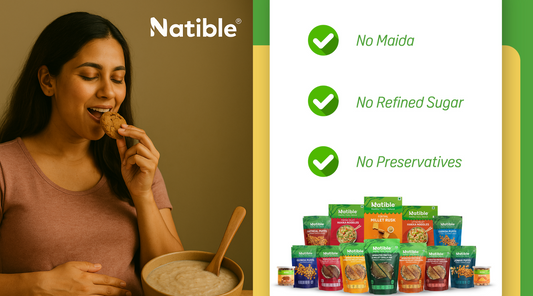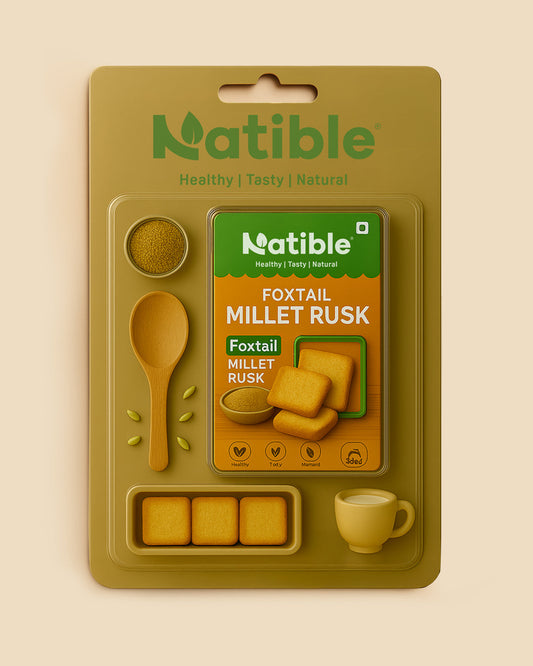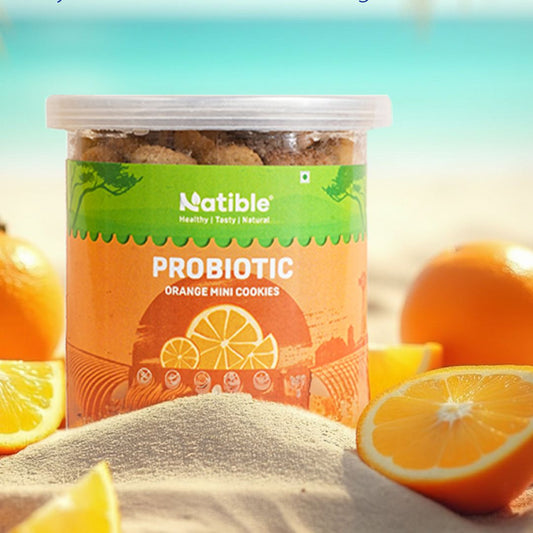Pregnancy is a beautiful and transformative journey—but it also demands smart and balanced nutrition. As your body nurtures new life, the need for iron, calcium, fiber, and complex carbohydrates increases significantly. That’s where millets for pregnancy shine.
Once considered ancient grains, millets like ragi, bajra, foxtail millet, and jowar are regaining the spotlight. Scientifically proven to offer immense health benefits, these grains are becoming pregnancy superfoods.
In this blog, we’ll explore the nutritional benefits of millets during pregnancy, backed by recent research, traditional relevance, and actionable tips.
Why Millets Are Important During Pregnancy
Millets are packed with nutrients that support both maternal health and fetal development:
- Iron – Combats pregnancy-related anemia
- Calcium – Strengthens bones of both mother and baby
- Magnesium & Zinc – Boosts immunity and supports cellular development
- Dietary Fiber – Improves digestion and prevents constipation
- Complex Carbs – Provides long-lasting energy
- Plant-Based Proteins – Aids in tissue formation for the growing baby
1. Iron-Rich Millets Help Prevent Anemia During Pregnancy
More than 50% of pregnant women in India suffer from iron-deficiency anemia (NFHS-5). Low iron leads to fatigue, low birth weight, and premature delivery.
A 2024 study in Frontiers in Nutrition found that daily millet intake increased hemoglobin levels by up to 13.2% in anemic individuals.
Best millets for iron:
- Pearl millet (Bajra)
- Finger millet (Ragi)
2. Calcium-Rich Millets Support Bone Development
Calcium is crucial, especially in the third trimester when the baby's bones develop rapidly. Finger millet contains 344 mg of calcium per 100g, making it a powerhouse among plant-based foods.
A review published in Sustainability highlighted ragi as one of the best non-dairy calcium sources suitable for pregnant women.
Use finger millet in porridge, pancakes, or rotis.
3. Millets Relieve Constipation and Boost Digestion
Constipation during pregnancy is common due to hormonal changes. Millets, being high in soluble and insoluble fiber, aid digestion and promote regular bowel movements.
A study in BMC Complementary Medicine and Therapies showed that millet porridge significantly improved gut motility in expecting women.
Best fiber-rich millets: Foxtail millet, Little millet, Kodo millet
4. Low Glycemic Index: Manage Gestational Diabetes
Gestational diabetes mellitus (GDM) affects many mothers-to-be. Millets have a low glycemic index (GI), which helps regulate post-meal glucose spikes.
According to a 2023 PubMed study, replacing refined grains with millets significantly reduced blood sugar levels in pregnant women prone to GDM.
5. Millets Improve Gut Health & Immunity
A healthy gut boosts immunity and nutrient absorption. Millets act as prebiotics, feeding beneficial gut bacteria. Fermented millet products like idlis, dosa batter, or probiotic drinks offer dual benefits: prebiotics and probiotics.
Try millet-based idlis, kanji, or dosa for improved gut health.
6. Millets Provide Long-Lasting Energy and Fullness
Fatigue is a real issue during the second and third trimesters. The complex carbs and magnesium in millets provide consistent energy while promoting muscle relaxation.
Their amino acid content also increases satiety, helping reduce overeating and cravings.
How to Include Millets in a Pregnancy Diet
🔹 Breakfast: Ragi porridge with milk, dates, and almonds
🔹 Lunch: Millet khichdi or bajra roti with dal and veggies
🔹 Snacks: Roasted millet puffs, ragi laddoos, or low-sugar millet energy bars
🔹 Dinner: Replace white rice with foxtail millet or little millet
🔹 Baking: Use millet flour in cookies, pancakes, and muffins
Pro Tip: Rotate between different millets to maximize nutrient intake.
Final Thoughts: Why Millets for Pregnancy Are a Game-Changer
Millets are not just a food trend—they are ancient grains backed by modern science. Whether you're looking to manage anemia, support fetal development, prevent constipation, or maintain energy, millets during pregnancy are an excellent addition to your diet.
With millet-based snacks and meals becoming more accessible, it’s never been easier to eat healthily during pregnancy.
As always, consult with your gynecologist or a registered dietitian before making major changes to your diet.









